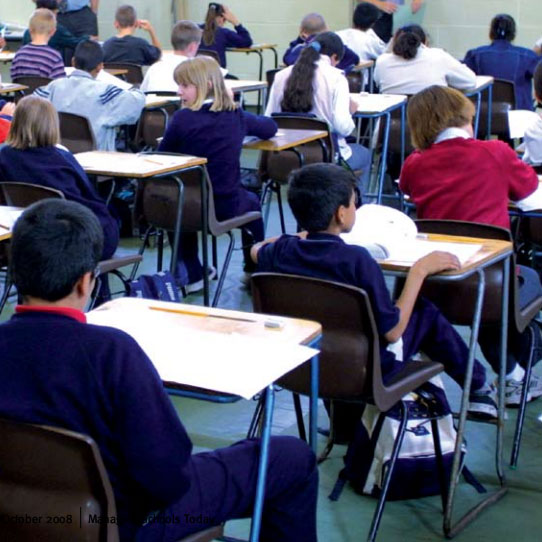
Divisive, demoralising and destructive - that’s the National Challenge, says headteacher Phil Karnavas, where the culture of target setting appears to undermine highly effective schools.
“All children deserve a great education and the support they need to get good qualifications and succeed in life. I know that this belief is what motivates people to become teachers and school leaders, and it is also the principle behind the National Challenge... Our goal is that at least 30 per cent of pupils in every secondary school will achieve five or more A*–C GCSEs including English and mathematics by 2011... The National Challenge will focus more attention, support and resources on your school. It is our intention to get behind your efforts to improve attainment, so that you can achieve your aim of accelerating improvement.”
This is how the National Challenge was announced to me. Great stuff. I have no issue with the intention of the National Challenge. Obviously, there are schools that will need help and support to do a better job. Obviously, underperformance must be tackled. Obviously, I accept the need for accountability. Obviously, I welcome increased resources. Obviously, we all want our children to do well.
However, my willing suspension of disbelief was shattered by the first phone call of the day. “How does it feel to be head of a failing school on the new national list of shame?” Groan.
I have reservations about the methodology by which underperformance is identified and some concerns about the way this initiative has been played out on the national stage. I have more reservations as information is released about the nature of the support and the amount of money actually finding its way to schools. A return to the language of ‘failing schools’ is profoundly upsetting, particularly because it will damage the children who the National Challenge is supposed to help. For the Government to argue that this presentation is down to press reporting is rather like the defendant in a court case found guilty of murdering their parents arguing for mitigation because they are an orphan.